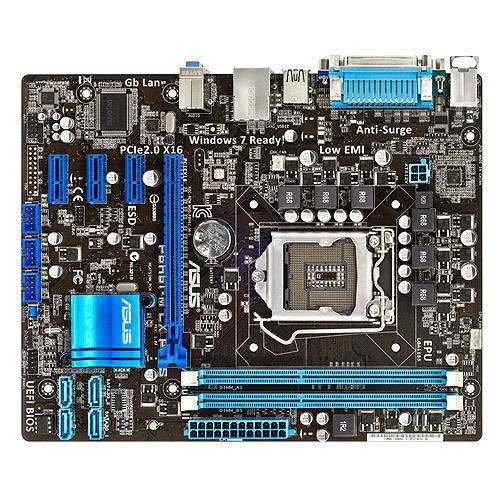Asus and Gigabyte are two of the most popular brands for motherboards. The world’s leading is ASUS motherboard manufacturer, providing products for both Intel and AMD processors. Gigabyte, on the other hand, is a Taiwanese company and is the second largest motherboard manufacturer. Both brands offer a wide range of motherboards, from entry-level budget models to high-end enthusiast-grade models. The motherboard asus price is comparatively higher.
Asus motherboards are known for their excellent build quality and attention to detail. The company has been a leader in innovation and is constantly pushing the boundaries of technology. Asus motherboards come with a variety of features, such as advanced overclocking options, improved power delivery, and support for multiple GPUs. They are also known for their excellent customer service and warranty programs.
Gigabyte motherboards are also known for their quality and reliability. They generally offer similar features to Asus, including support for multiple GPUs, but they focus more on value for money and tend to be more affordable. Gigabyte motherboards are also known for their easy to use BIOS interface and their wide range of customization options. The gigabyte motherboard price is lower.
Advanced Micro Devices Support on Asus and Gigabyte Motherboards
Both Asus and Gigabyte motherboards offer support for AMD processors. Asus motherboards are known for their excellent compatibility with AMD processors, and they offer a wide range of features to make the most out of the processor. Asus motherboards come with features such as AMD Overdrive, which allows for easier overclocking, and support for multiple GPUs.
Comparison of Asus and Gigabyte Motherboards
When it comes to comparing Asus and Gigabyte motherboards, there are a few key points to consider. Asus motherboard is generally more expensive, but they offer a wide range of features and excellent compatibility with AMD processors. Gigabyte motherboards, on the other hand, are more affordable and offer similar features, but they tend to focus more on value for money.
Features Of Asus
Some of the features that ASUS motherboards offer include:
-
Advanced overclocking feature
ASUS motherboards offer advanced overclocking features that allow users to get the most out of their CPUs.
-
Enhanced cooling
ASUS motherboards come with enhanced cooling features that help keep your system cool and stable.
-
Robust power delivery
ASUS motherboards feature robust power delivery systems that ensure stable and reliable power to your components.
-
High-quality audio
ASUS motherboards come with high-quality audio codecs that deliver great sound quality.
-
Extensive connectivity:
ASUS motherboards come with a wide variety of connectivity options, including
Features Of Gigabyte
Gigabyte motherboards are feature-rich, providing users with a wide range of options and features. Some of the most popular features include:
-
Support for multiple graphics cards
Gigabyte motherboards typically support multiple graphics cards, making them ideal for gamers or anyone who wants to run multiple monitors.
-
Overclocking support
Many Gigabyte motherboards come with support for overclocking, giving users the ability to push their CPUs and GPUs to the limit.
-
Ultra durable construction
Gigabyte motherboards are built with high-quality materials and components, ensuring that they can withstand even the most demanding workloads.
-
Audio Boost
Many Gigabyte motherboards come with an integrated audio boost feature, which delivers superior sound quality and clarity.
-
Intel Thunderbolt 3 support
Some Gigabyte motherboards come with support for Intel Thunderbolt 3, providing users with fast, versatile connectivity.
Conclusion
Asus and Gigabyte are both excellent brands for motherboards, and each has its own advantages and disadvantages. Asus motherboards are generally more expensive, but they offer a wide range of features and excellent compatibility with Asus motherboard AMD processors. Gigabyte motherboards, on the other hand, are more affordable and offer similar features, but they tend to focus more on value for money.






